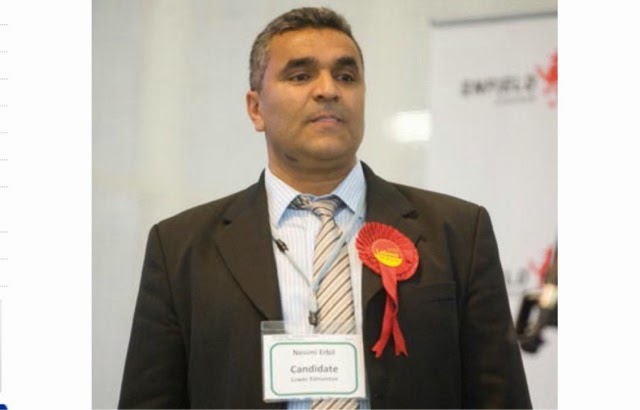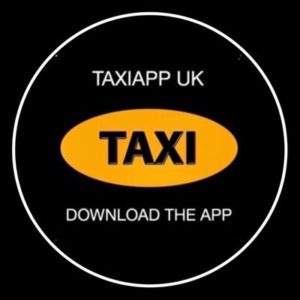As buses roar past Transport for London’s headquarters on Victoria Street, Transport Commissioner Sir Peter Hendy is characteristically bullish on the strike: “It is clearly disruptive but it doesn’t stop London coming to work.” He insists that the problem is pay scales within operating companies that reward longer-serving and more experienced drivers. The Unite union has yet to announce further action but Hendy predicts it will fizzle out.
Meanwhile, the simmering row over the Mayor’s east-west Thames cycle superhighway is set to reignite early next month, when TfL’s board meets to approve a modified proposal. The project has set cyclists against some big business interests, notably Canary Wharf Group, and the consultation attracted a record 20,000 comments. Expect bad-tempered reactions on one or both sides.
But Hendy’s next big headache could come from a very different part of the transport system: cabs.
TfL is responsible for regulating and licensing London’s taxis and minicabs and it is now locked in an unprecedented series of disputes with the cab trade. Last month a London Assembly report described TfL’s role as “woefully inadequate”, charging that “communication [between TfL and the trades] appears to have hit rock-bottom in the last year”. The cabbies’ anger focuses on the activities of app-based company Uber, and on touting.
TfL did not get all the blame: the report charged that “efforts to modernise taxi and private hire services and meet passenger expectations are being hindered by the lack of a mayoral strategy”, a point reinforced this week at Mayor’s question time, when Boris Johnson admitted to not having read the report — to jeers from watching cabbies. The report also noted a “spiralling” decline of the already tetchy relations between the two halves of the trade: the city’s 22,597 licensed taxis and 70,928 private hire (minicab) drivers.
“The London Assembly needs to remember that TfL’s function is regulatory, to fairly apply some very arcane laws not of our own making,” counters Hendy. To make his point he drops a huge tome on the table in front of him with a bang, industry bible Button on Taxis: Licensing Law and Practice. Its 1,100 pages of regulations go back to the London Hackney Carriage Act 1831, which is still in force.
Thus last week TfL won a victory at the European Court of Justice against Addison Lee, London’s largest minicab operator, over bus lanes. Black cabs are the only cars allowed to use the lanes but in April 2012 Addison Lee told its drivers to use them regardless, calling them “unfair discrimination”. A long legal challenge began. TfL argued that because black cabs are hailable and accessible for wheelchair passengers, they are different. The courts agreed.
“I think it’s a real shame that we’ve spent the thick end of £400,000 proving something that most people believed to be the case in the first place,” says Hendy. Addison Lee now has one last appeal if it chooses; it declined to comment. But Hendy is not in forgiving mood.
“If they ever decide to instruct their drivers to break the law again, we will seriously consider, them having done it once, whether they are fit and proper people to hold a licence, and we might decide that they’re not,” he warns. Private Hire Vehicle operators’ licences usually run for five years.
But the heart of Hendy’s battle with the cabbies is Uber. The Californian company arrived in London in spring 2012. “We had absolutely no reason not to issue them with a licence, so we did,” says Hendy.
 Legal challenge: Addison Lee (Picture: Jeremy Selwyn)
Legal challenge: Addison Lee (Picture: Jeremy Selwyn)
Uber has since revolutionised the industry. It was not the first cab service bookable by smartphone: both Hailo, started by three London cabbies, and Israeli firm GetTaxi arrived in the capital in 2011. What was new was Uber’s dispatching and charging, based entirely on an iPhone app, at prices mostly lower than other minicabs.
Uber drivers pay the firm to use its iPhone 4 (it cannot be used as a normal phone and its messaging, iTunes and web browser are also disabled). Since 2012 it has gained a rumoured one million London users; the company refused to comment on the figures.
The rest of the industry complained to TfL — when, exactly, is bitterly disputed, though by the end of 2013 the Licensed Taxi Drivers Association (LTDA — by far the biggest black-cab drivers’ organisation), the Licensed Private Hire Car Association, representing some minicabs, and Addison Lee had all joined battle. They argue that Uber’s app is effectively a taxi meter and, therefore, under the Private Hire Vehicles (London) Act 1998, illegal. The Act states: “No vehicle to which a London Private Hire Vehicle licence relates shall be equipped with a taximeter…” — “taximeter” means a device for calculating the fare to be charged in respect of any journey by reference to the distance travelled or time elapsed since the start of the journey (or a combination of both).
“Of course it’s a bloody meter — it calculates fares,” says Steve McNamara, LTDA general secretary. But Hendy is adamant: “None of the laws were written for the modern mobile phone and app era.”
TfL was advised that the Uber app is legal but nevertheless made moves to get the High Court to rule on the law.
The LTDA responded last July by bringing private criminal prosecutions against six Uber drivers. The High Court will not rule before those prosecutions are withdrawn. Now, at last, McNamara has indicated to the Standard that the LTDA is willing to withdraw the cases, allowing the High Court to rule — if it chooses to do so.
 Popular: Uber arrived in London in spring 2012 (Picture: AFP/Getty)
Popular: Uber arrived in London in spring 2012 (Picture: AFP/Getty)
Nor are meters the only issue: there is anger over Uber operating here while being legally based in the Netherlands for tax reasons. Hendy says he has written to HMRC drawing its attention to this arrangement, though it is not for TfL to investigate. An Uber spokesman will comment only that “we are fully compliant with tax laws of the United Kingdom and the European Union”.
But while the stalemate has remained, cabbies have got angrier. Last August 4,000 staged a blockade in central London, causing traffic chaos, to protest about Uber.
They also inadvertently caused an 850 per cent increase in the number of downloads of Uber’s app: a common reaction from this paper’s readers was that they could no longer afford black-cab fares anyway. There was another smaller blockade last September.
“I’m not surprised we’re unpopular because modern technology is disruptive,” responds Hendy.
“But I’ve yet to meet a black-cab driver who’s actually able to say to me that Uber has damaged their business.
“I think what Uber is doing is making headway in the late-night and recreational market, where we know there aren’t enough licensed taxis.”
So does the Transport Commissioner use Uber himself? “Yeah, I’ve used Uber, Hailo, GetTaxi, Addison Lee,” he admits, “and I hail taxis in the street.”
It’s not hard to imagine the likely reaction of London’s furious blogging cabbies to that response. But Hendy is unapologetic: “People say to me, ‘Your job is to protect the taxi trade.’ No it isn’t: our job is to look after the customers.”
The argument over just how to do that in modern London’s cabs could be about to get uglier.












Recent Comments